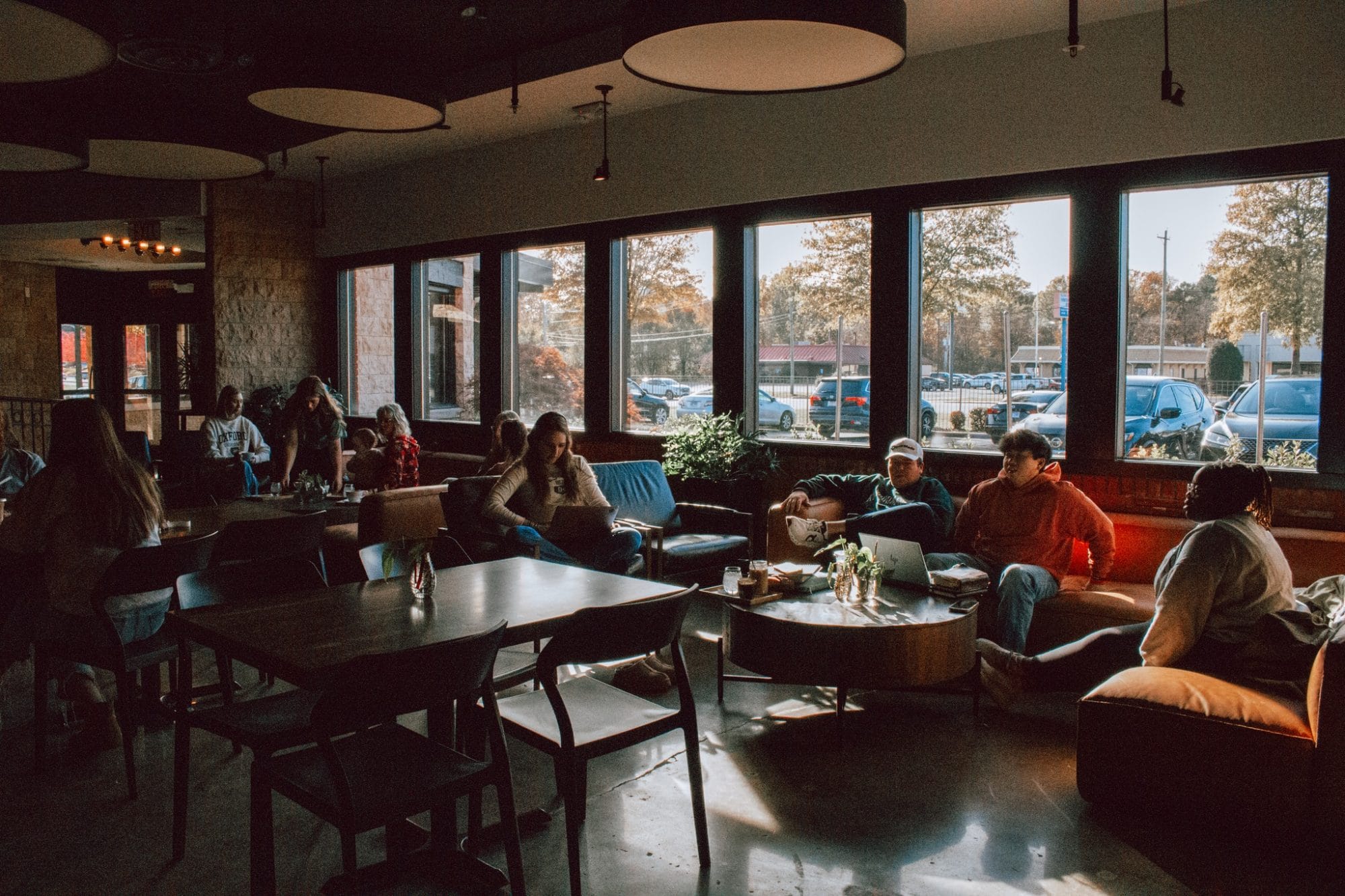A Church Reborn
Drew Cline could not imagine going back to Temple Baptist Church. He loved his role as Creative Catalyst at Fellowship Bible Church in Little Rock. He was free to do what he loved as an artist, whether leading the worship team or cultivating a songwriting culture. Fellowship was open and innovative. Temple, on the other hand, was traditional and conservative. Their congregation had declined. Most of their large church building was neglected. Once the flagship church of the Baptist Missionary Association, Temple was slowly dying on the vine. Yet, there was still a place in Drew’s heart for the people and place that was his church home growing up. “Everything that happened spiritually in my life pretty much up happened at Temple,” he says. “Saved. Called the Ministry. Married on the steps. The whole nine yards.”
While Drew thrived at Fellowship, he felt a calling to lead at another church. Maybe it was at one of Fellowship’s campuses or a church plant somewhere. Then, one day, he got an invitation to a youth group reunion at Temple. “I came, and we went into the family life center. I was talking with the sound guy, and he was like, ‘The church is really struggling. We meet here now.’ I said, ‘You don’t meet in the main sanctuary?’ because there were close to a thousand people there when I was a kid. He told me there were 40 people left. When he said that, my heart just dropped. I told the group, ‘Let’s pray for Temple. Let’s pray that God sends them who they need,’ never thinking that was going to end up being me.”
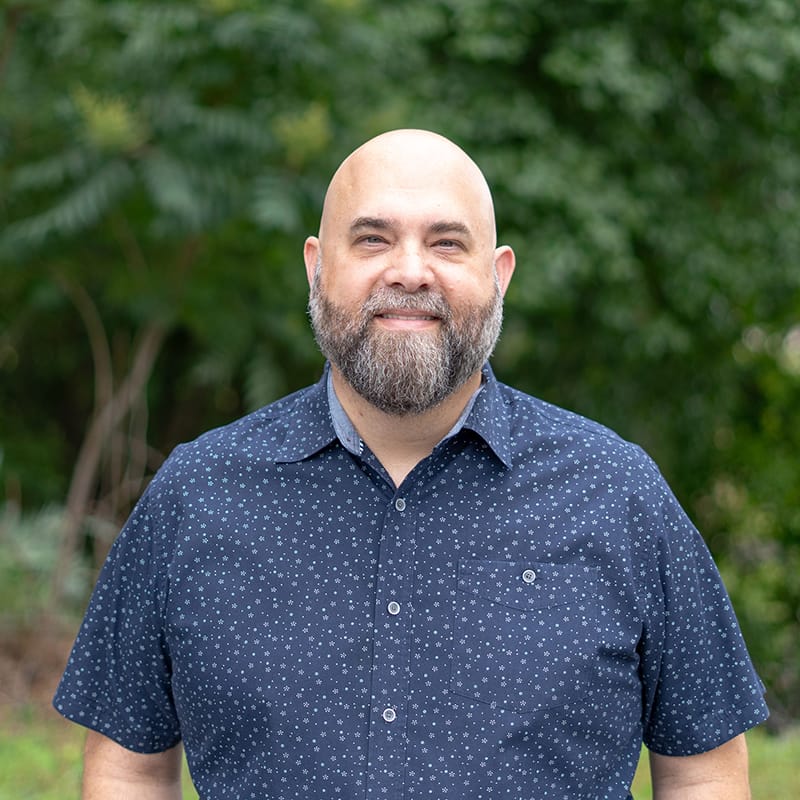
Temple was on Drew’s mind a lot after the reunion. “I’m an idea guy,” he says. “I love building things and starting things, creating things.” But Drew still didn’t want to go back. Eight months later, Drew had a dream. “The Lord just downloaded ideas and people and vision and a heart for the church that wasn’t me.” Donnie Parish, Drew’s youth pastor at Temple, knew Drew and Temple’s story well. Drew came to him and asked, “Am I crazy? What’s going on?” Donnie told Drew, “I think God might be calling you to a lifelong season there.”
“When he said that, I couldn’t deny it,” Drew says. Drew scheduled a lunch with the church’s pastor, Jerry Kidd. “I had written all these ideas down, and I’m basically going to tell him, ‘I think God called me to take your job.’ He’s the active pastor at the church. It sounds insane. What kind of moron would do such a thing?” Over lunch, Drew stared at the table and avoided eye contact with Brother Jerry. He knew what was coming. “Finally, I get out all the things I feel I need to say. I look up at him, and he’s weeping. He’s drying his face and says, ‘I’ve been praying for you for almost a year.’” Brother Jerry told Drew he had been praying that one of the young men from the reunion would be God’s man to lead the church.
Changes
It took Drew a year of wrestling with God to make a decision. “It’s a conservative church. It just feels like it isn’t me. At Fellowship, I’m living in a free environment of creativity where I can do things,” he says. “It literally came down to, if I don’t do this, I’m going to be disobedient to the Lord.” In the fall of 2016, Drew left Fellowship for Temple.
Four weeks later, Brother Jerry asked Drew to lunch at Cracker Barrel. “I meet him there, and he’s got this look on his face,” Drew says. “I can’t tell what he’s thinking. He’s got a good preacher voice and tells me, ‘God loves and provides for His Church, Drew.’ I said, ‘Yes, sir.’ He told me, ‘I’m going to give you what salary I make. It’s not much.’ I said, ‘I feel like you need to keep your salary, and you need to stay on board with me. Let’s do this together. I’ll lead, but you come alongside me as our legacy pastor. Help us lead and help us dream.’”
Three weeks after that conversation, Brother Jerry asked Drew to lunch again. Once again, Brother Jerry told him, “God loves and provides for His Church, Drew.” “Yes, sir,” Drew responded. This time, Brother Jerry pulled something from his coat pocket and put it on the table. It was a deposit slip to the church’s account for $417,000 from a brother and sister at the church who had left money in an estate. It took Drew by surprise, but he saw God at work. “God is with us! God is doing something bigger than us! I didn’t know what, and I was scared to death.”
Drew was upfront with the church’s leadership about big changes at the church. Behind these changes was answering one essential question: “What is the why?” “It’s the mission of Jesus,” he says. “Everything we do has to be around the why of making disciples. That’s the only thing that matters.” Three months later, the first change was proposed: to transition from a congregation-led church to an elder-led church. That change came down to a vote by the congregation. “I remember sitting at the front with Brother Jerry, and I said, ‘If this vote doesn’t go through, we’re done.” The vote was unanimous to become an elder-led church.
Next, there were conversations about the church’s name. Drew wondered, “Does the name work anymore? Is there a history with the name we could lose?” Six months later, Temple Baptist Church became South City Church. With this change, the church adopted a new mission statement and core values. They also renovated the church sanctuary.
“We were doing what everybody else was doing. I always loved small groups and small group community. We were growing, and we got to COVID, and that was a crazy season,” Drew says. Around that time, Drew and elders from the church started the Antioch School, a church-based training program for church leaders. What they learned about the early church’s approach to ministry at the Antioch School didn’t look like what they were doing. They also learned from church planting networks like the Kansas City and Tampa Underground. As they learned, puzzle pieces fell into place, giving them a picture of what it meant for them to be a church on mission.
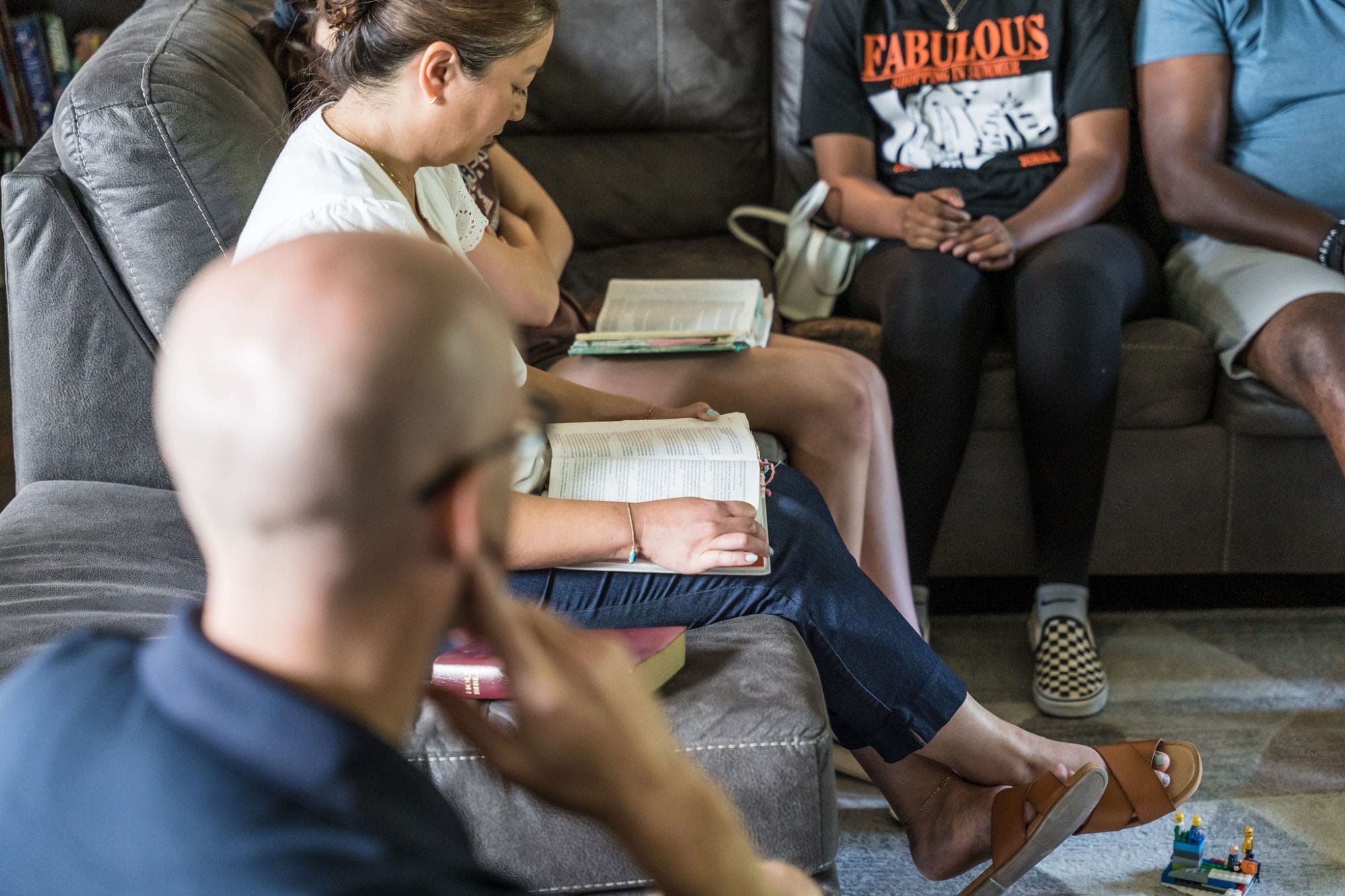
Life on Mission
The church launched a program called Equip, taking members through The First Principles, a series from BILD International that follows the model of the early church in establishing believers in the faith. For a year and a half, they moved their Sunday service to 9:30 and did training through Equip at 11:00. “That was a big deal,” Drew says. Equip training was voluntary, but people there were eager to learn. Through Equip, people learned about what it means to be a disciple of Jesus and love your neighbor.
Out of this training came another change. Small groups became city groups. Currently, 12 city groups meet in homes as a ‘small family’ across Central Arkansas on alternating weeks. City groups come together for a ‘large family’ gathering when they don’t meet in their homes. Behind the concept of city groups is a desire to equip believers to fulfill the mission of God. “We’re not content with ‘See you Sunday.’ That’s not getting the church anywhere. Status quo is the enemy of Jesus,” Drew says. “God called us to love one another and be on mission.”
South City’s executive pastor, Darrell Adcock, says, “We’ve grown in what we understand disciple-making to be. It’s broader than just offering a class and people growing in their knowledge of Jesus. But it’s really moved to an obedience-based understanding. How are people living out what the New Testament is calling us to? We’re seeing that not just in one couple or a few places. It’s really become the culture of who we are and what we’re all doing together as a family of families.”
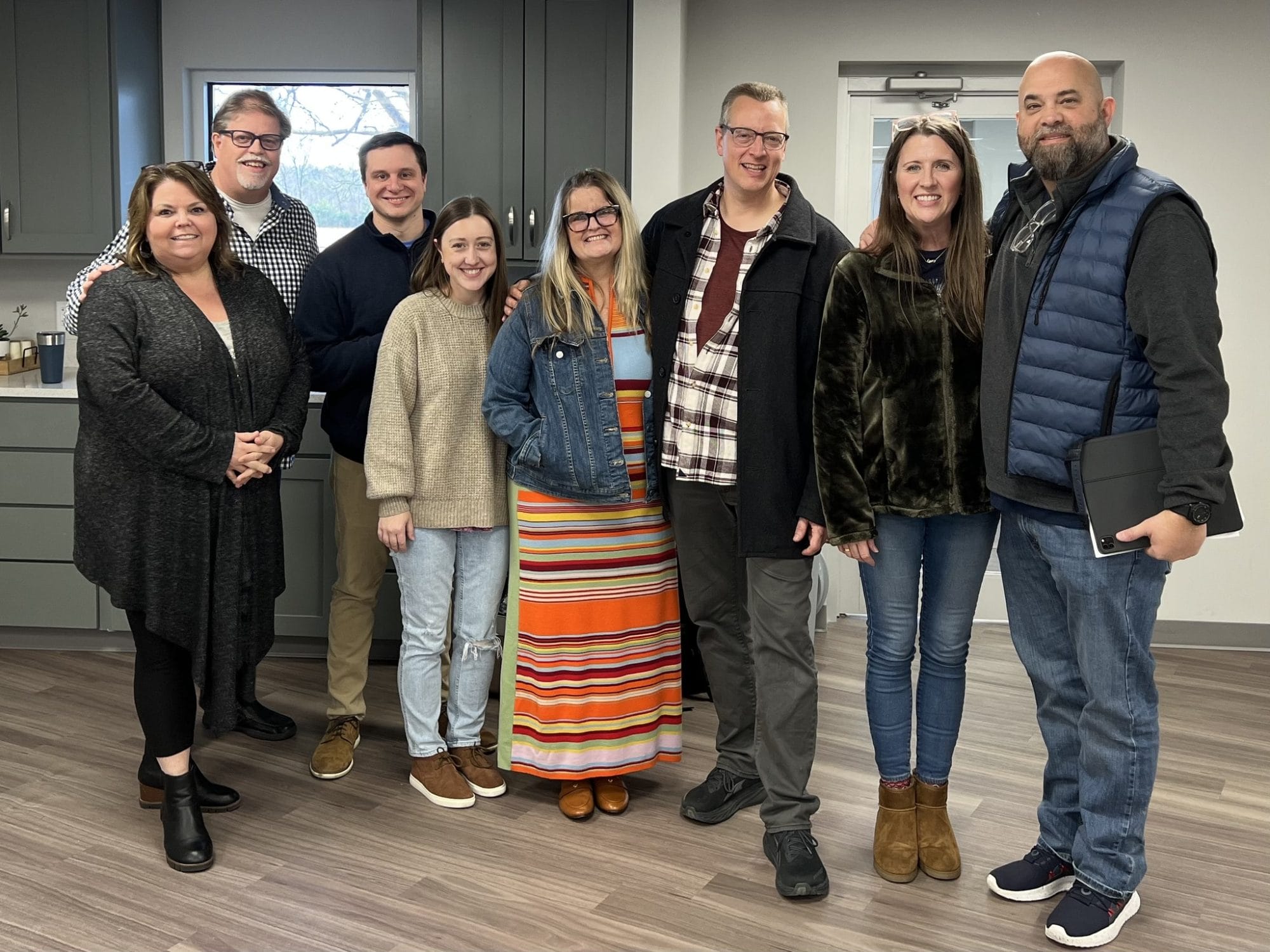
With city groups, there was a cultural shift in the church. Leadership roles rotated. Different families hosted groups. Different people led worship and group discussions. The same was true at ‘large family’ gatherings on Sundays. Darrell says, “We have a skeletal staff, and it requires more lay volunteers to own ministry. This is all a team sport. The kingdom is all of us using our gifts. I’m proud of the men in our church who told us, ‘I’ve never prayed out loud before,’ or ‘I’ve never led communion before.’ We said, ‘Alright. Let’s talk about that.’ We just want ordinary, everyday people doing the work of ministry, and we’re seeing that happen. It’s walking hand-in-hand, shoulder-to-shoulder. When you stumble across something you’ve never done before, let’s do it together. We’re becoming more distributed as we grow. As leaders grow in their experience, it allows the whole organism, the whole family, to be stronger.”
Amy and Ken’s Story
Amy Bridgeport, a South City member, says her city group helped her and her husband, Ken, discover a practical approach to loving their neighbors. “We started going to South City, and we didn’t realize it was a different model of meeting in city groups across the city. We loved the community and the city group we were in. We loved that the leadership saw some strengths and gifts in us that seemed to dovetail into the vision of loving people,” Amy says. A turning point came when Amy and Ken realized the simplicity of Jesus’ command to “Love your neighbor as yourself.”1 “It dawned on us that ‘Love your neighbor’ means, guess what, ‘Love your neighbor.’”
For Amy and Ken, this led to small but intentional changes. “We wondered how we could love our neighbor, and one of the things we realized was that taking a walk is not just taking a walk,” she says. “Walking is meeting people, talking to people, praying for the homes we walk by, and paying attention to people’s rhythms.” The couple started inviting neighbors over. “It was all really fun. We play games and pull practical jokes on each other now.”
For Amy, it’s been a joy to see those connections deepen. “Our neighbors used to know each other back in the day, but people have come and gone over the years. They’re starting to get to know each other again.”
Crucial to these relationships are neighbors meeting needs for one another. “We have some people in our neighborhood who have medical or practical needs. Often, we’re able to just listen and take groceries or whatever we need to do. Serving each other is starting to be contagious in our neighborhood. It’s not just us meeting needs anymore. It’s families helping families.” Amy has learned to let people meet her needs, too. “When we went on vacation last summer, we asked our new neighbor to watch our dog. They were very accommodating and jumped right in!”
Amy continues to grow in her understanding of what it means to obey Jesus’ command. “We’re becoming a lot more comfortable with bringing the church to and loving people where they are instead of expecting them to jump into our paradigm. The whole goal is to just be a vessel, and hopefully, our prayer is that people will experience God through us, whatever that looks like to them. We’re still learning. We’re still working on that.”
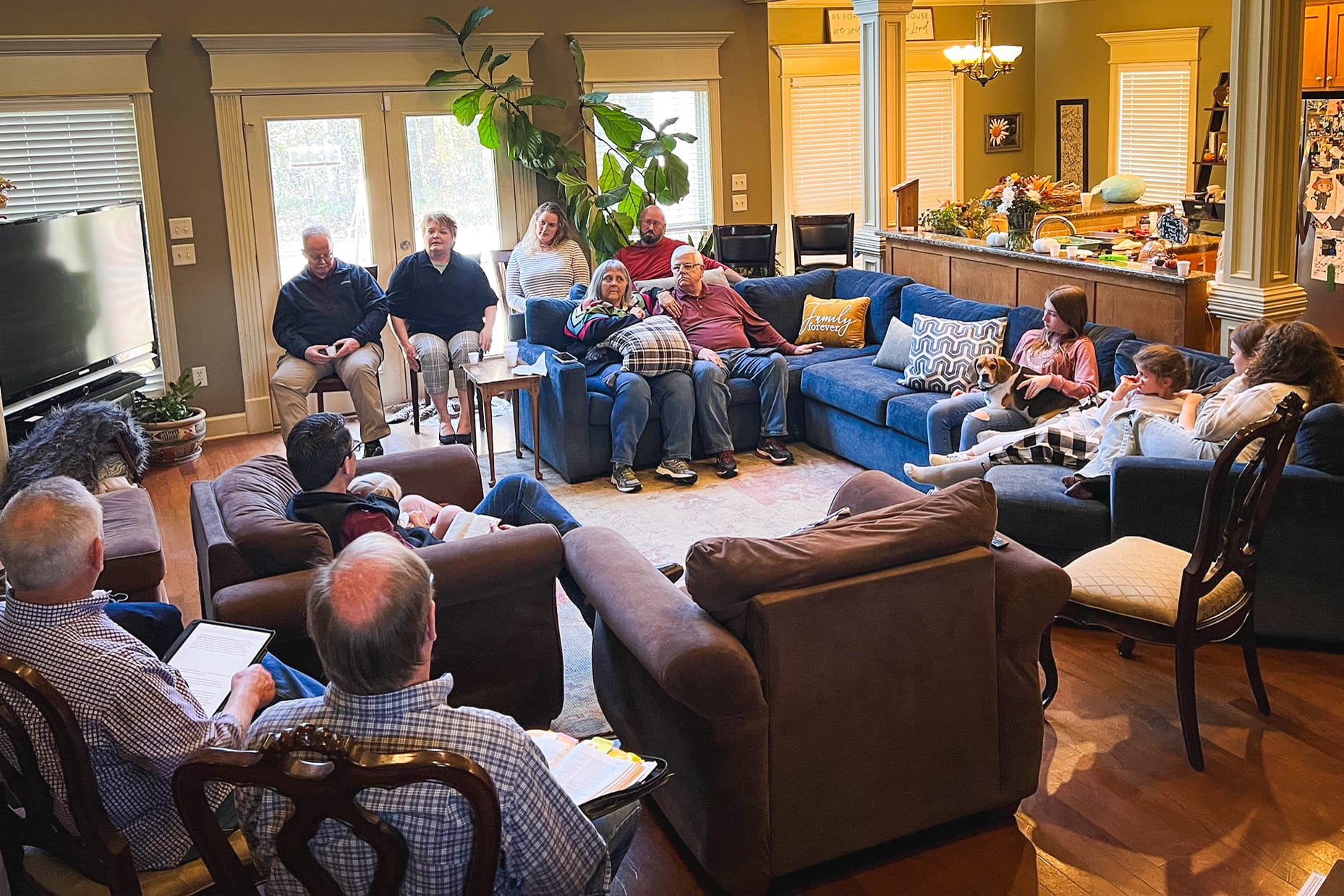
317 Coffee & Cafe
With all the changes at South City, one thing had not changed—their location. The former Temple building was old, and upkeep was expensive. “We have this big property—25 acres and 60,000 square feet under our roof is very expensive. One year it cost us $230,000 just for facilities maintenance,” Drew says. Furthermore, they only used a few rooms there. “There were places in that building I never even looked in.” Drew had visions of restoring it, but even Brother Jerry told him, “We have to get out.”
The elders talked about what to do with the property. They decided to sell the property to a charter school, which allowed the church to meet there for two years. After that, South City needed to find another place to meet. There were discussions about renting a space, but Drew had another idea. “I said, ‘Hey, what if we got something bigger and were able to do a coffee shop, and maybe it was big enough to have some live music. So, we started dreaming about what they would look like.’” Around that time, a place right off of I-430 on South Shackleford became available. Formerly Regas Grill and later P.J. Chang’s, the property had been neglected for years. It was in near disrepair. But Drew saw potential. From the moment he set foot inside, he knew this was the place. “I could see as clear as day what it could be.”
They made an offer for the property and came to an agreement with the owner. One day, the owner asked to meet with Drew. He told Drew, “I’ve got another offer that is $400,000 more than what we agreed to. I’ll honor your offer, but you have to make a decision tonight.” That evening, the elders debated what to do. “We prayed and decided not to do it. We said, ‘If we’re going to make a decision tonight, the answer is no,’” Drew says. The elders felt at peace about the decision. Drew was reluctant to let the dream slip away. He and others thought there might be another opportunity. “For three months, I’d come over there and have lunch. I’d walk around the building and pray or just sit in my car and pray,” Drew says.
What happened next shocked everyone. Four offers on the property fell through, and it was once again available. “So, we made an offer, and we got it,” Drew says. A small team that included Drew and Darrell oversaw the renovation project. Drew worked alongside the general contractor they hired. “I’ve never done anything like this. It was a total redo from the ground up,” he says.
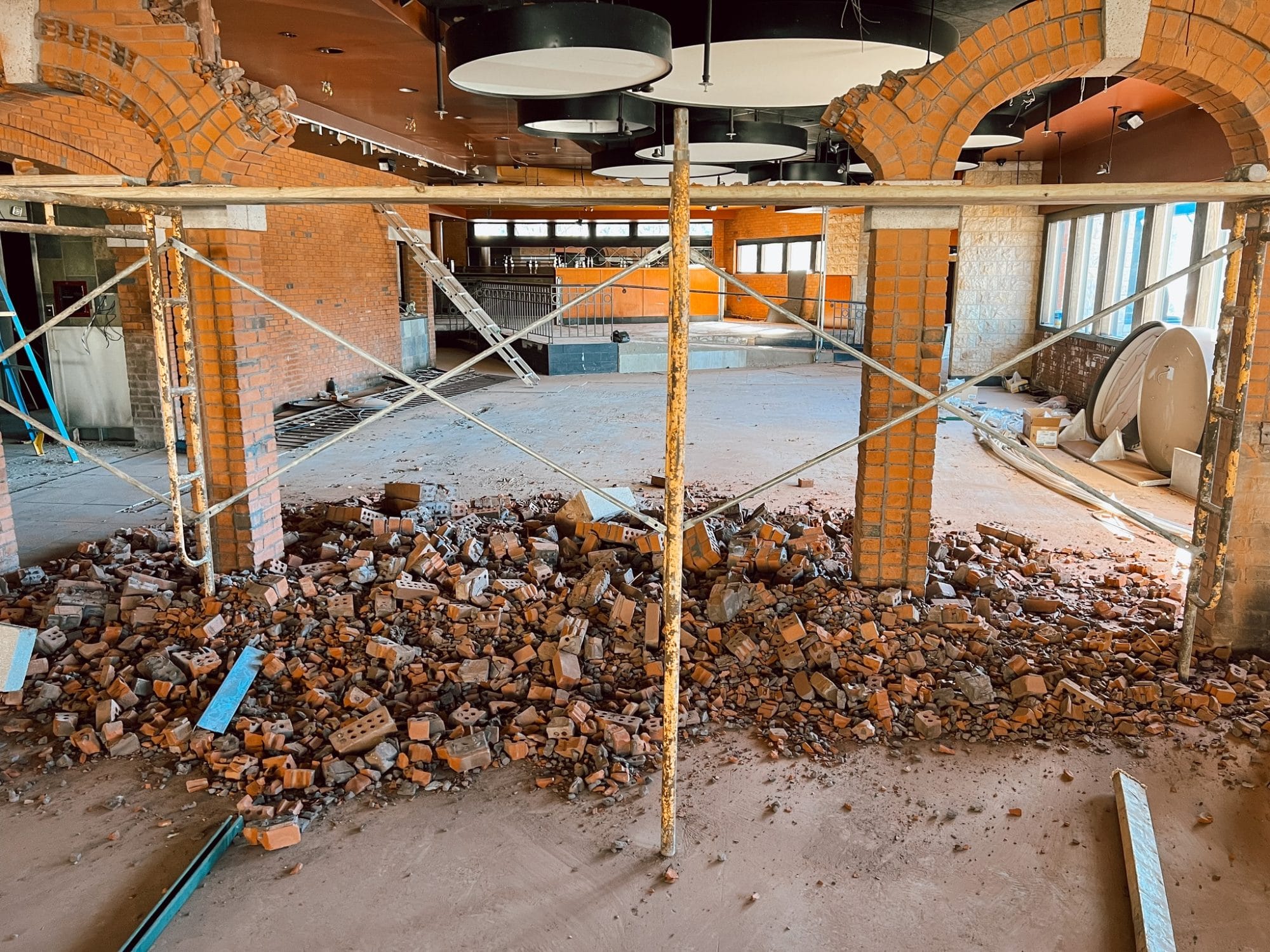
They also hired a director, chef, and baristas for the coffee shop, which they named 317 Coffee & Cafe. Drew’s dad gifted the coffee shop recipes for dishes he made famous at Cordell’s, a restaurant he owned that gained a cult-like following after it closed. Along with those recipes, they came up with new concepts. Step by step, things came together. Fifteen months later, in August, the church was ready to open. The café would open later in December.
Drew wanted Brother Jerry, who was not in great health, to be there when the church opened. “I just kept praying that God would allow him to see this place. And he did. For the first service, he prayed over this place, and it was amazing,” Drew says. That day was the culmination of hard work and dedication by many to make the dream a reality. For Drew, the last few months have been a mix of joy and grief. “My dad passed away in June, so he didn’t get to see it finished. It was a heartbreaker. Then, my wife was diagnosed with cancer in September, which was world-shaking. My brother, who was going to help us get started with the recipes from Cordell’s, died in November. It’s been a really hard year.”
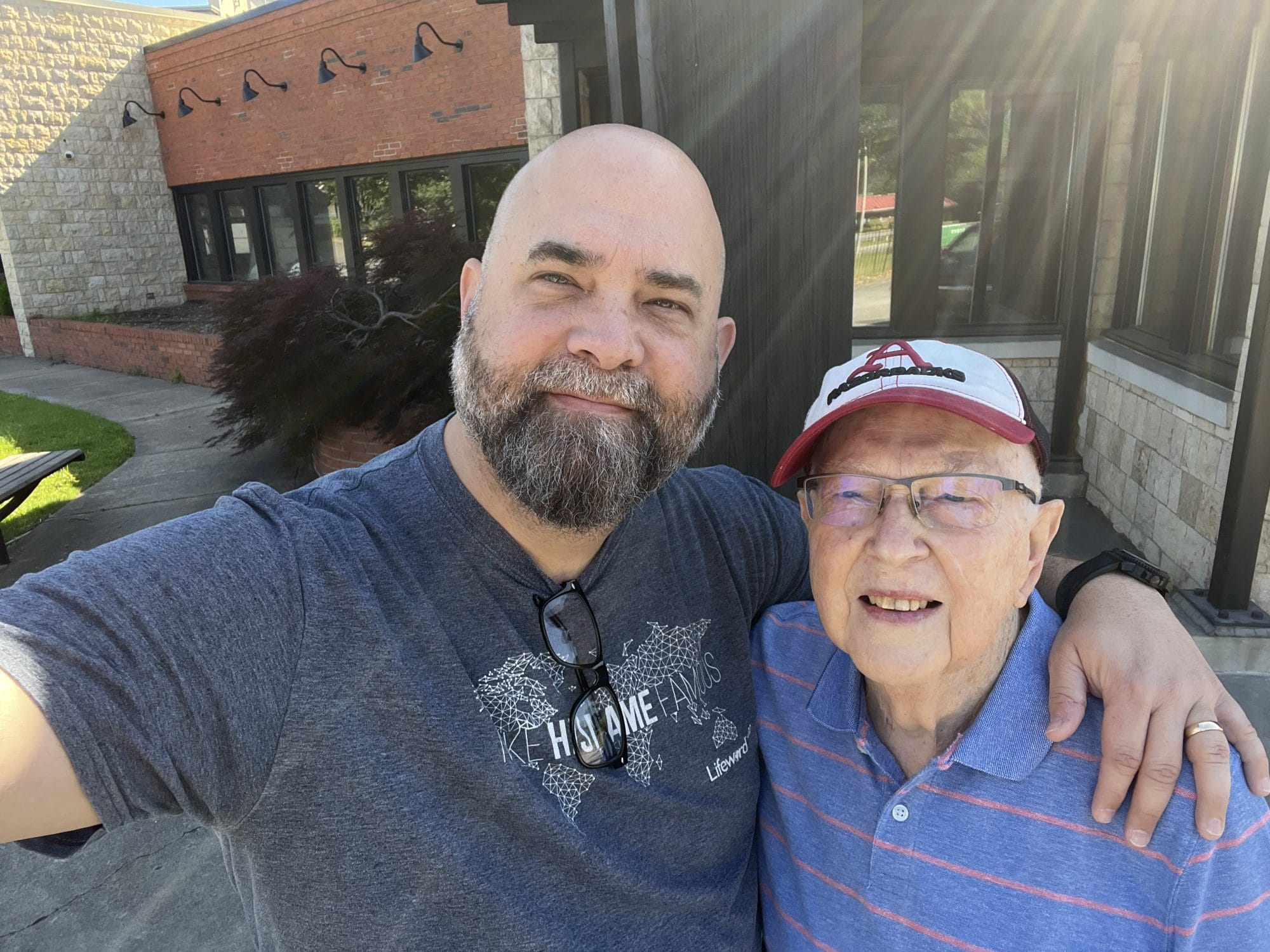
Reflecting on what he’s learning in a difficult season, Drew says, “There’s nothing much that matters but the mission of Jesus. I don’t matter. My name doesn’t matter. South City’s name doesn’t matter. If we can be a blessing to our city for the mission of Jesus and make disciples, that’s what matters.”
We are grateful for the exceptional work of South City and other churches in our cities that are dedicated to the mission of Jesus and making disciples. They are helping the whole Church grow.
Speaking the truth in love, we will grow to become in every respect the mature body of him who is the head, that is, Christ. From him, the whole body, joined and held together by every supporting ligament, grows and builds itself up in love, as each part does its work.
Ephesians 4:15-16
1 Mark 12:31
